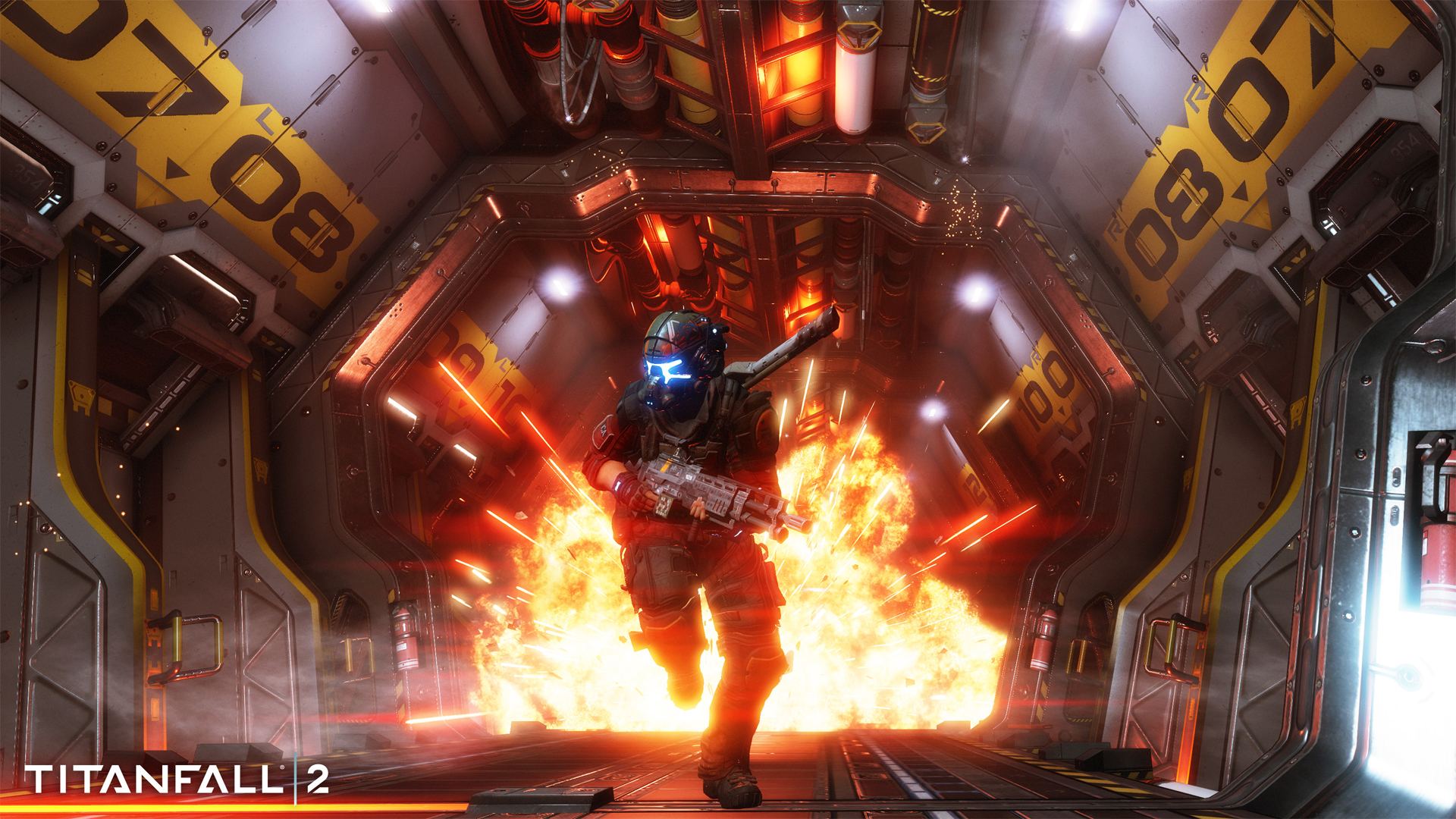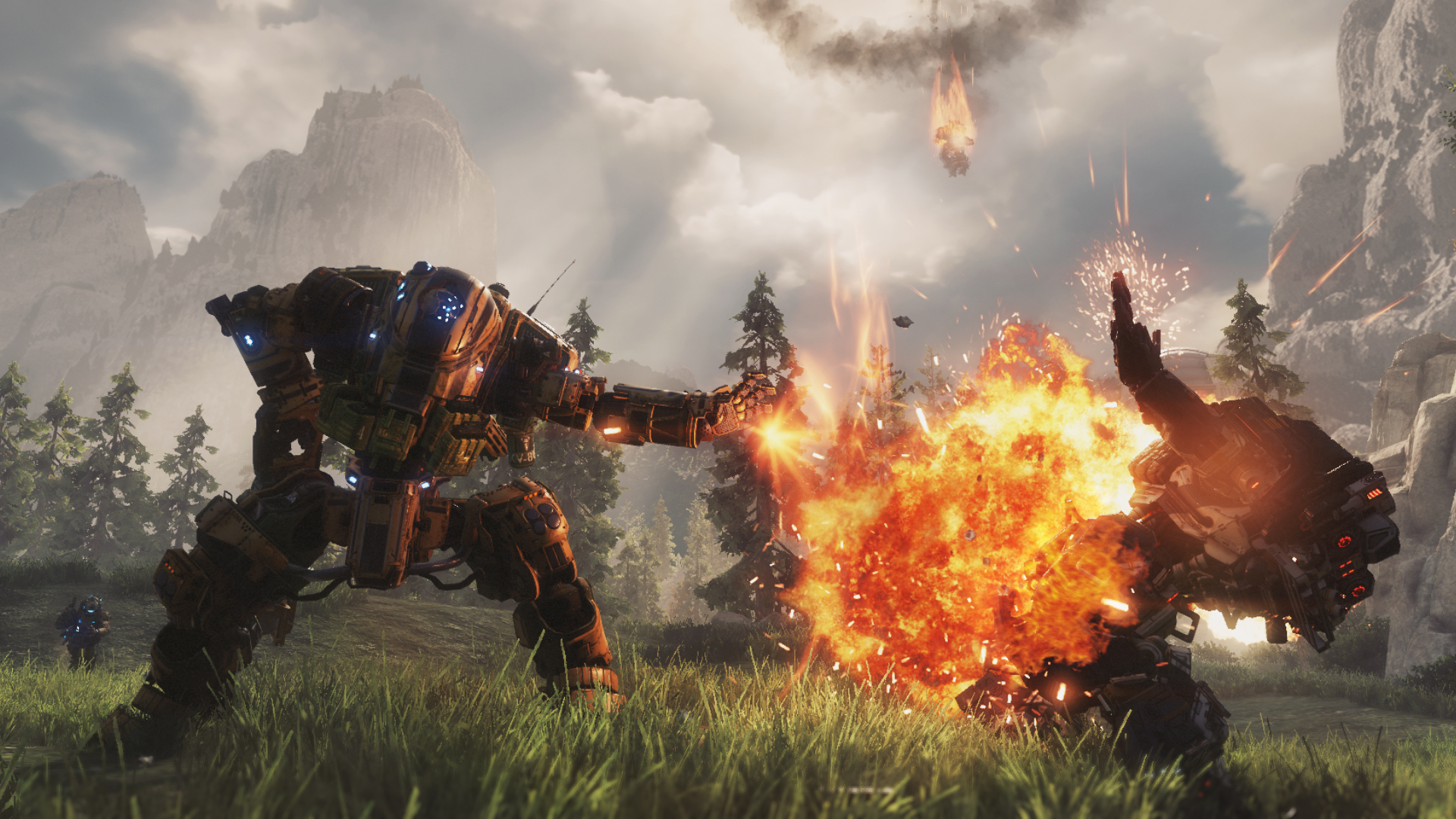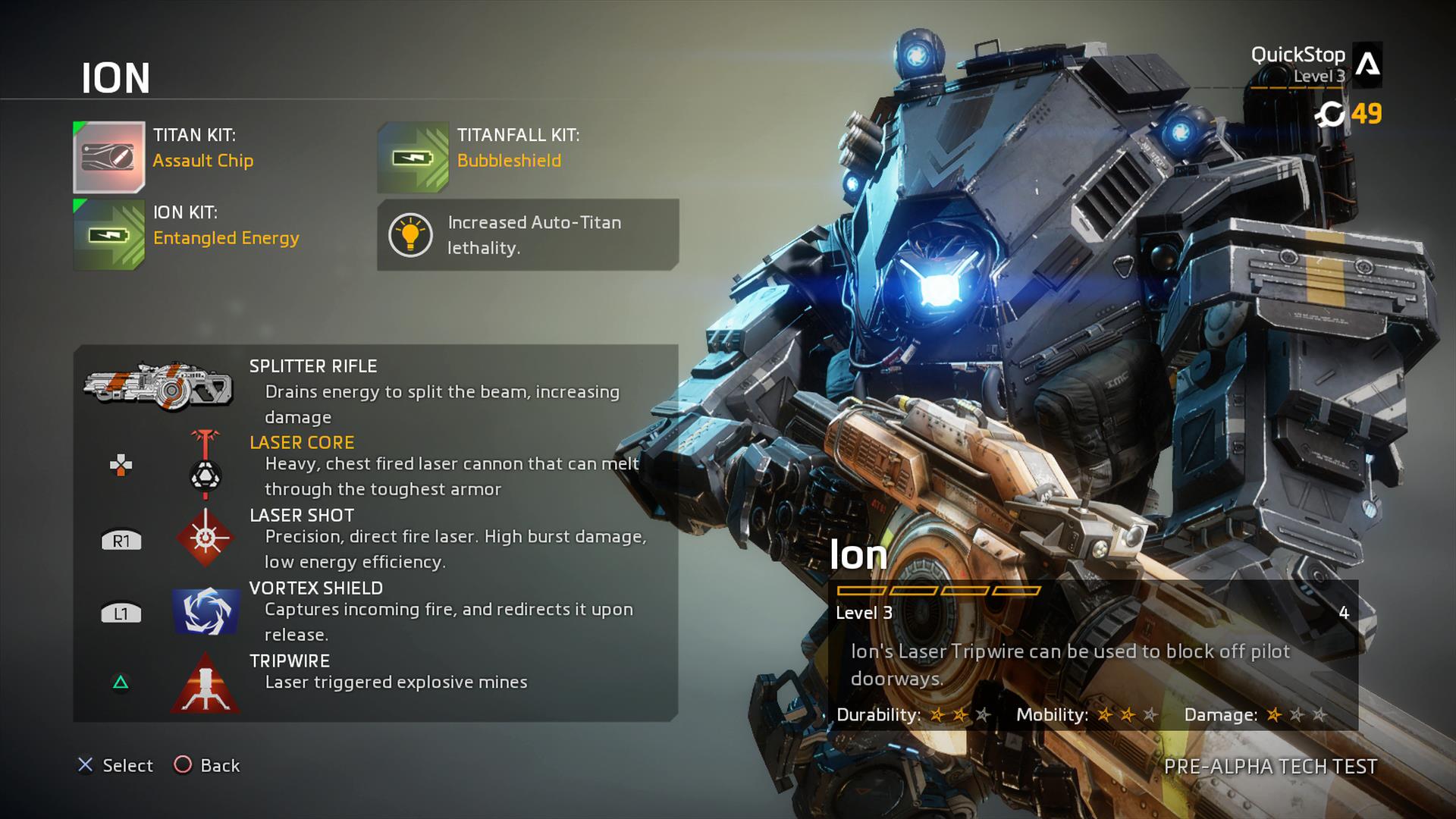Bye-bye Burn Cards: the big changes coming to Titanfall 2 multiplayer

Titanfall 2's multiplayer isn't more of the same. Ok, yes - it still revolves around the 'pilots and giant mechs' gameplay that defined the original Titanfall, and provides players with the exhilarating, jetboot-enabled high mobility that's become de rigeur in the FPS ecosystem. But the key difference is the new philosophy that Respawn Entertainment uses to guide the designs of this sequel's fast-paced, team-based firefights. "When we started on the multiplayer aspect of this game, we really tried to unpack it; figure out what worked, what didn't, how do we refine this game and make a better version of it," says producer Drew McCoy. "There was nothing that was sacred, more or less." Where the first Titanfall reveled in multiplayer pandemonium, with Titans raining down from the sky at a rapid clip and pilots deploying boon-granting Burn Cards seemingly at random, Titanfall 2 aims to deliver something else entirely: a healthy dose of predictability.
That doesn't mean that every match is somehow preordained by fate; Titanfall 2's multiplayer still delivers the kind of twitch shooting, spontaneous thinking, and dexterous parkour maneuvers that multiplayer encourages, and there's always some randomness inherent to the behaviors and varying skill levels of your fellow online players. But when game systems are predictable, they become much easier to grasp, creating the kind of 'minute to learn, lifetime to master' accessibility that's at the core of the best multiplayer shooters. "Now players can make a plan, and they can build expectations in their head for how things are going to play out," says lead designer Mackey McCandlish. "They can make choices around that, and then they can compare what happened [during a skirmish] with what their expectations were - and that creates a learning loop."
To foster that kind of weapon-and-warmachine-filled learning environment, Titanfall 2 makes a particularly drastic change: the removal of the Burn Card system entirely. Burn Cards were an interesting but ultimately convoluted experiment in the first Titanfall, where players could trigger a single-use, deactivates-on-death advantage granted by a wealth of different Burn Cards, which were earned through challenge completion or found in randomized, purchasable card packs. "Burn Cards provided a neat avenue of a little off-angle spike of gameplay, like you can do something different for a little bit," says McCoy. "But that had some inherent problems - they weren't predictable. You would have people who would get something like the Atlas Refurb card, [which allows you to] drop a Titan at the very beginning of the match. And it totally throws the balance off; it throws off the curve of intensity of the match. They also made it so you couldn't tell what someone could do, because you didn't know what cards they had in their arsenal."

From the ashes of Burn Cards rises a new mechanic called Boosts, which better fits the path of predictability Titanfall 2 strives for. Boosts are similar to Burn Cards in that they provide a fleeting benefit, but they've been reined in from a bevy of potential bonuses to a small subset of distinct power-ups. So far, the Boosts include Amped Weapons, which buffs your weapon damage for a short while, Ticks, little drones that attack nearby enemies before detonating, and Smart Pistol, which brings back the divisive auto-aiming sidearm from the first game but smartly relegates it to a limited-time convenience (rather than a constant annoyance to other players). And because you're forced to pick one dedicated Boost before you enter matchmaking, you have a much better chance of figuring out what your opponents are capable of. "You'll learn, like, 'Oh, I know that he likes using this [Boost], or I've seen him already use it twice this round'," says McCoy. "I can predict it a little bit better, as opposed to it being a completely random thing."
Just because Titanfall 2 is more predictable, doesn't mean it can't have more variety. In addition to choosing your primary weapon (from a lean selection of assault rifles, submachine guns, light machine guns, sniper rifles, shotguns, and grenade launchers) and secondary (pistols or anti-Titan artillery), a key part of any loadout is the class you select. So far, five classes with exclusive abilities have been revealed: Pulse Blade (which has a sonar shuriken that briefly makes tagged enemies visible through walls), Grapple (with a grappling hook for extra mobility), Holo Pilot (sends out a decoy image), Stim (can intermittently activate a massive boost to speed and healing), and Cloak (which can turn invisible).

As you might imagine, your choice of class hugely affects your playstyle and potential, but each has its own unique pilot model (now including robots) that signifies their respective ability. At a glance, you can instantly identify the Grapple by the twin foxtails affixed to their metal craniums, or the bright red hue and the curved blade legs of the Stim android. The same goes for the individual types of Titan: if you see a chunky, sand-colored mech coming your way, you know it's the fire damage, thermite-spraying Scorch Titan, while the energy-based Ion Titan (complete with a chest-firing laser cannon) has a thinner black chassis. There's a wide range of choices to make when it comes to your preferred pilot and Titan makeups, without having to worry about any of the randomness that plagued the original Titanfall.
The selection of modes in Titanfall 2 lets you cater to your multiplayer preferences even further. Those AI bots that filled out the map in all of Titanfall's at-launch modes have now been relegated to just one: Bounty Hunt, a 5v5 skirmish that sees both teams wiping out waves of AI units and rogue Titans to score points and eventually cash in an accrued bonus or die trying. There's also the return of Pilots vs Pilots, an 8v8 battle that excludes Titans entirely to put all the focus on gun-toting, parkour-happy pilots duking it out. Finally (of the modes we currently know about), there's Amped Hardpoint, a 6v6 tug-of-war over three capture points, which can tick for double points if at least one player's actively guarding them - a ingenious tweak to the typical control mode formula.
Sign up to the GamesRadar+ Newsletter
Weekly digests, tales from the communities you love, and more
None of these modes are exactly alike, and Pilots vs Pilots even ditches Titanfall's namesake to facilitate the kind of team deathmatch typical of modern Call of Duty. But the folks at Respawn don't seem too worried about these divergent choices fracturing the multiplayer community - if anything, having a wider selection can only help Titanfall 2. "It's actually a constant fight during development on how much you dial up 'Titans vs pilots', because even within the studio, you have people who love Titan gameplay, those who love pilot gameplay, and then those who like the mixture [of both]," says McCoy. "And Titanfall 1 didn't give you a good chance to make that choice for yourself. I don't see it as a dividing thing, I see it as: no matter what, there are going to be people who want to just play as pilots [exclusively]. So we should make the best pilot-only mode we can, and cater to them. Otherwise, they're going to stop playing and go do something else."
For all its improvements and additions, the biggest change in Titanfall 2's multiplayer is its willingness to make things a little more predictable than its predecessor. And with predictability comes learnability - which lends itself to the kind of satisfying skill progression that's inherent to long-lived multiplayer games, where players are constantly refining their style and coming back for more. "A really good example of the whole learnability thing is Counter-Strike," says McCoy. "The theory among some of the designers [here] of why Counter-Strike can be so addictive is because you're going to do the same thing so many times over. But it's not the exact same thing - you're changing it by, like, half a degree [each time]. You're making a theory, then you test it out, and then you see the result. It's almost like a weird combat puzzle that you're always nicking away at, you're getting that much more perfect at. That's a really big thing that we want to try and get to with Titanfall 2 - always feeling like you could master the game a little bit better."
Lucas Sullivan is the former US Managing Editor of GamesRadar+. Lucas spent seven years working for GR, starting as an Associate Editor in 2012 before climbing the ranks. He left us in 2019 to pursue a career path on the other side of the fence, joining 2K Games as a Global Content Manager. Lucas doesn't get to write about games like Borderlands and Mafia anymore, but he does get to help make and market them.



